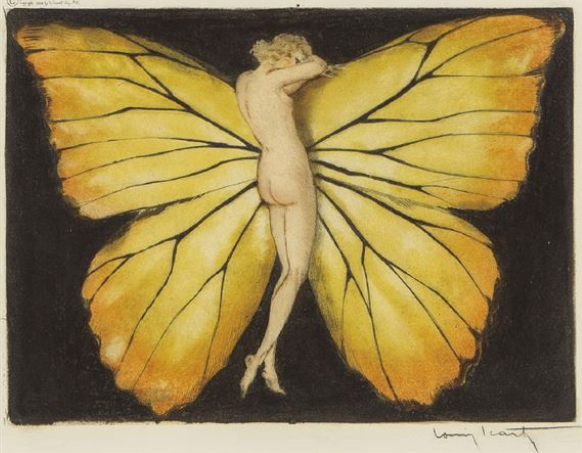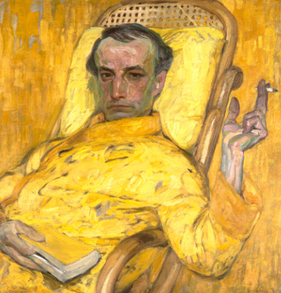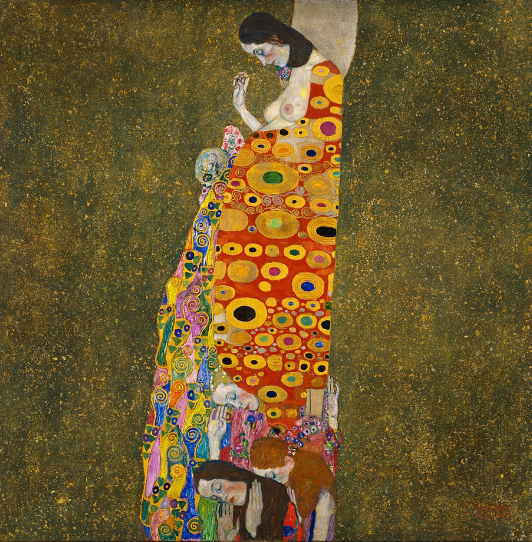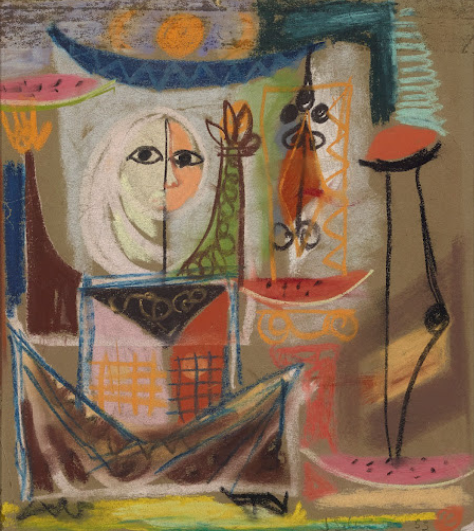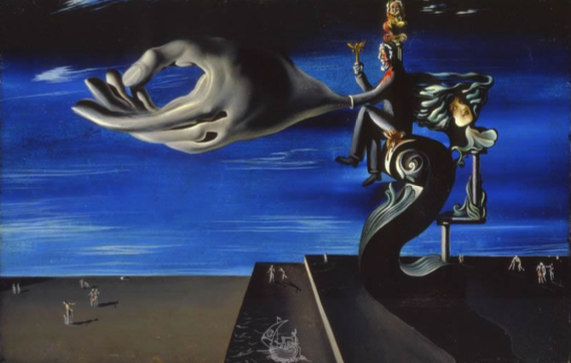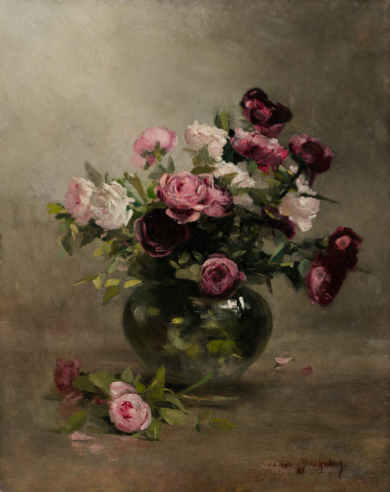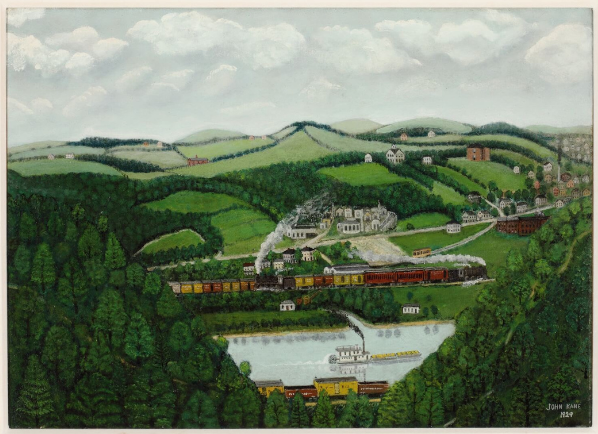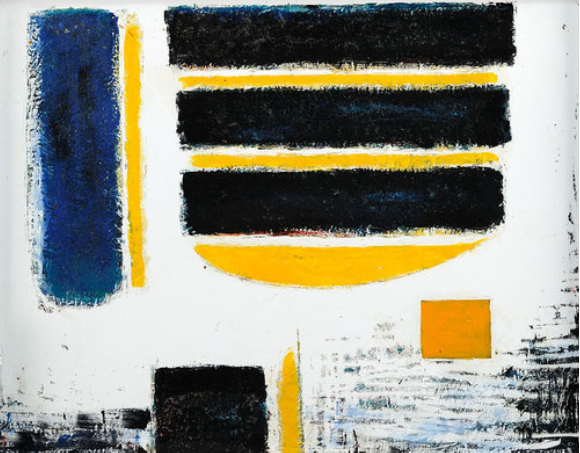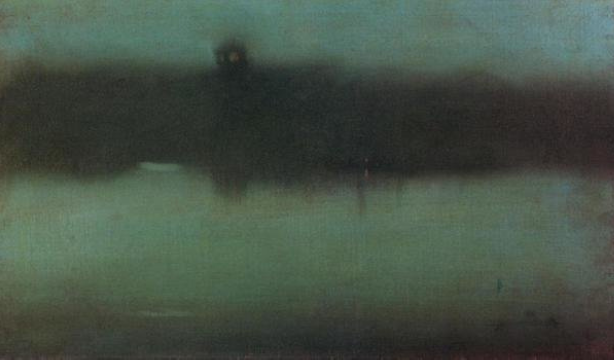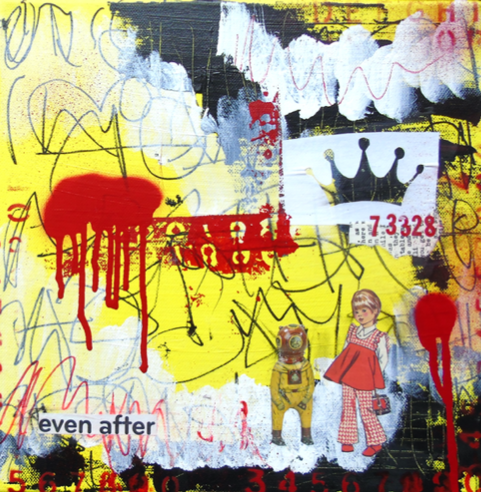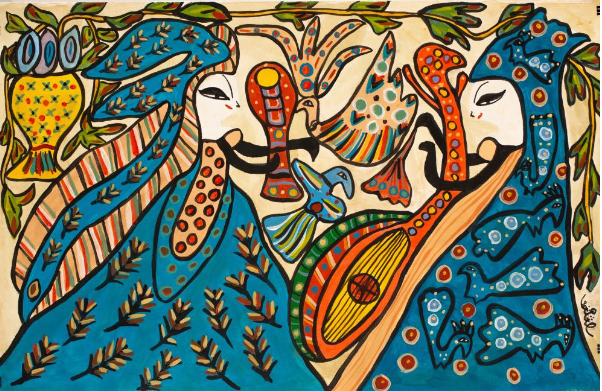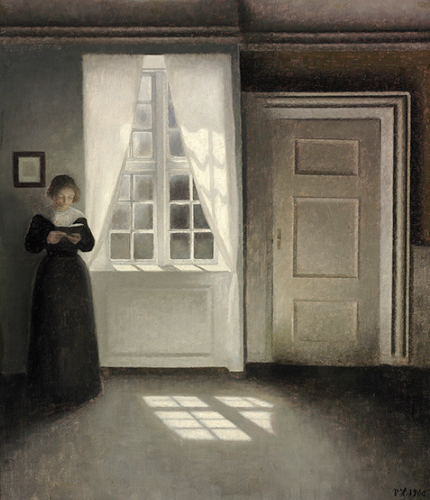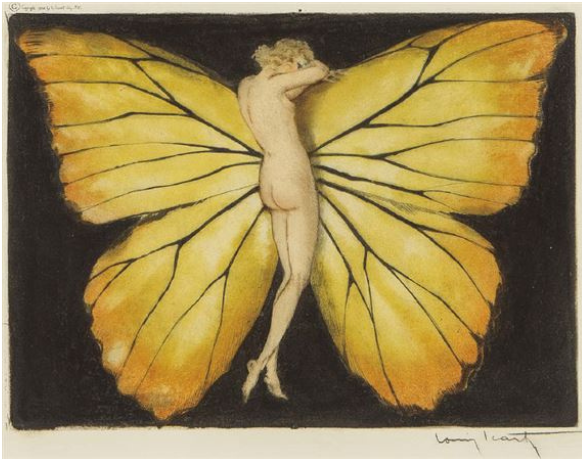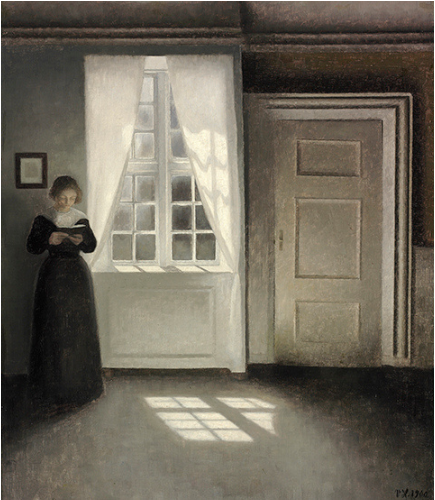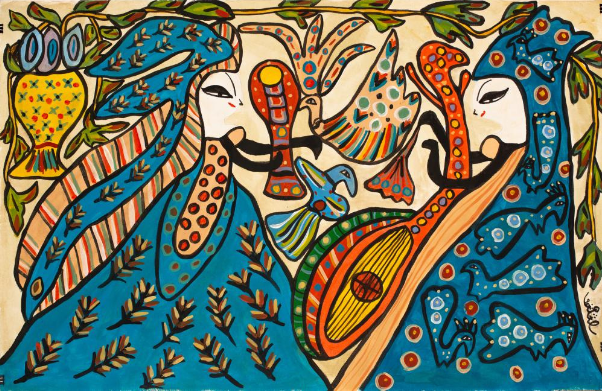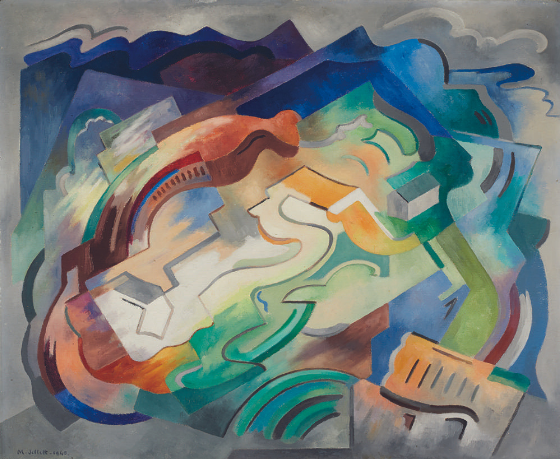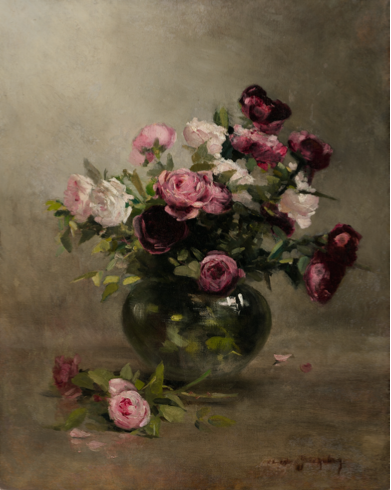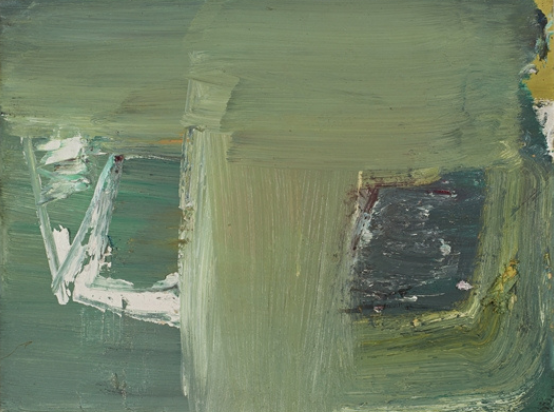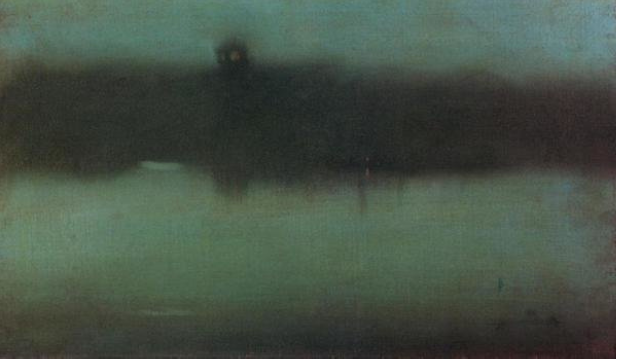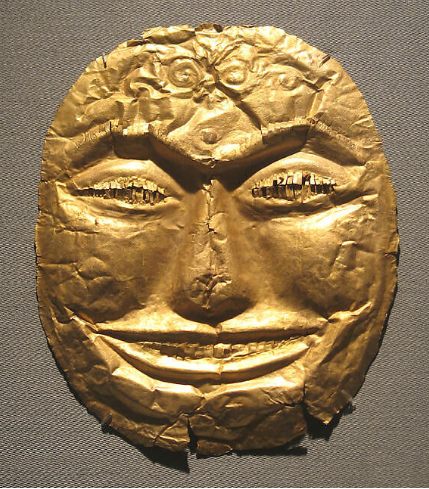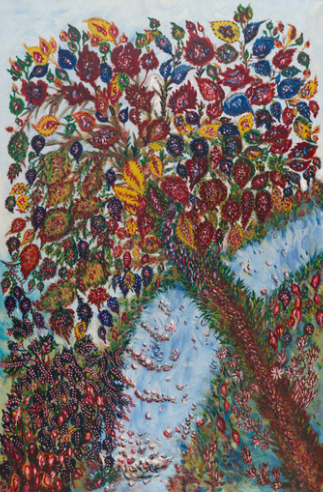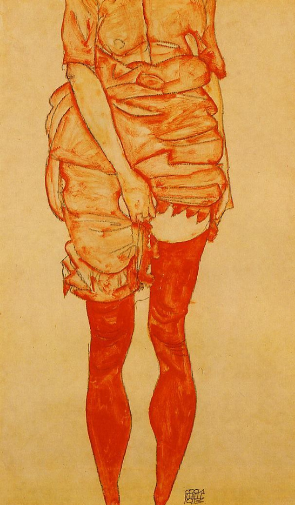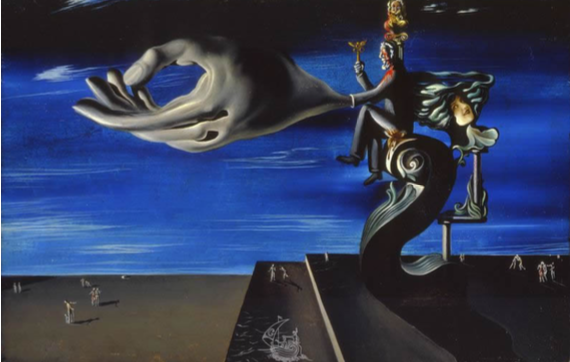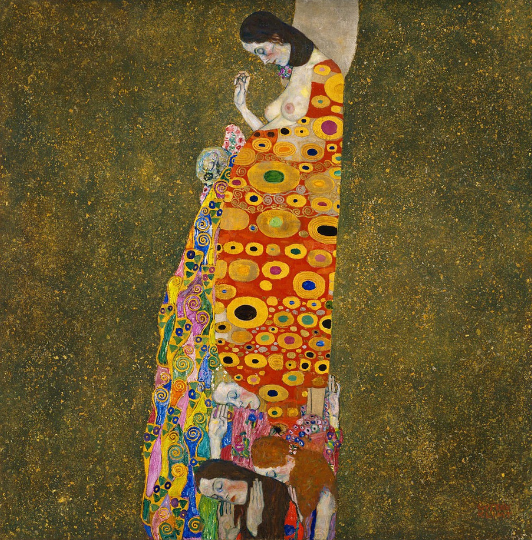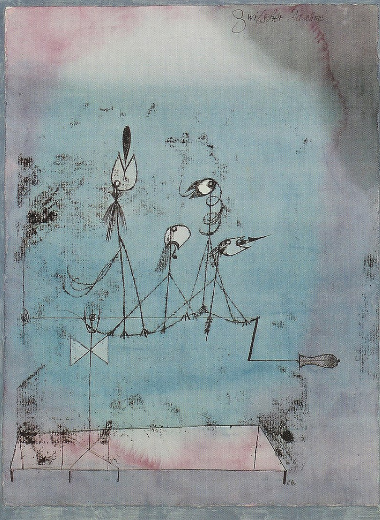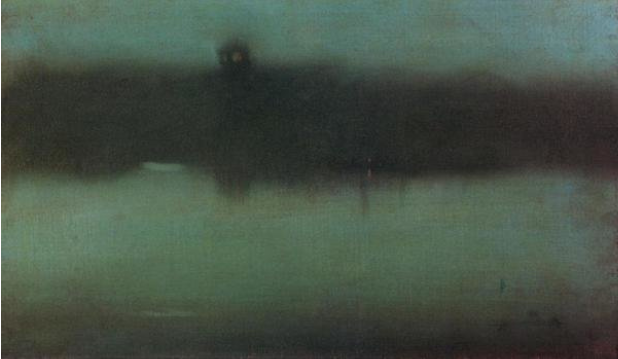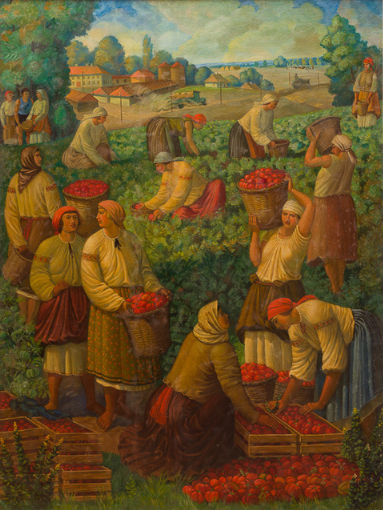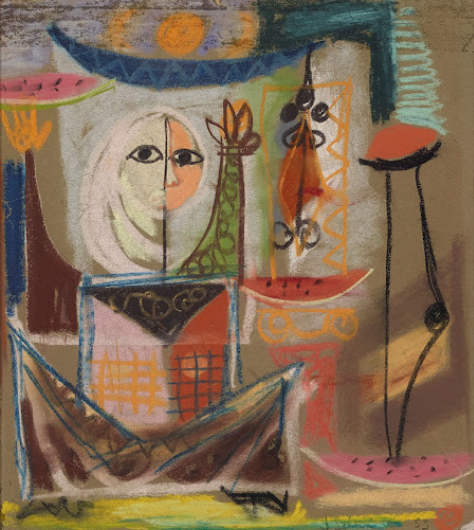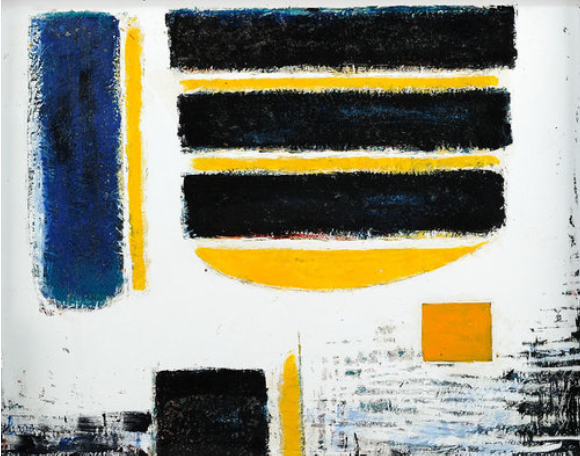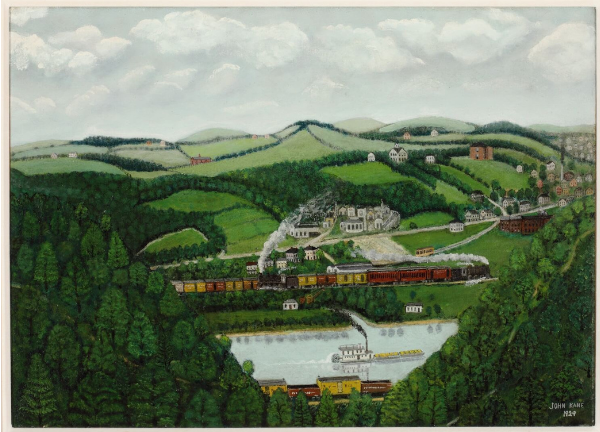|
What a wild time it was- unbridled creation. Thank you to everyone who participated in our second annual ekphrastic marathon! Every one who tried this fun and gruelling writing event is a courageous soul. Reading the entries birthed during the marathon, and choosing some for this showcase, proved a difficult task, as always. What a wondrous variety of works were inspired. It was not easy to select a few from so many shining jewels. Congratulations to everyone whose work is here. They are in alphabetic order of author, except for the first two, which are the winning poem and the winning story. I am grateful to our editor Sandi Stromberg for her help choosing the winners. Congratulations to Roy J. Beckemeyer for his winning story, "Performance Memoir in Yellow" (which was inspired by two of the prompts!) Congratulations to Karen FitzGerald for her winning poem, "Manuela's First Baby." Let's do this again sometime! Lorette Flash Fiction Winner: Performance Memoir in Yellow He chose to misread her title, announce it as “Woman in the Wings,” so sat, stage left, alone in the spotlight, aglow, smoke curling from his Gitanes, and addressed the audience using his tobacco-thickened accent, described each step in a stage whisper as she danced it: how she unfurled her wings, there just off stage right, crooning “Oh, déployer ses ailes,” how she carefully revealed her slender nudity. Her blonde hair was the color of lemons, she wore the fragrance of Limoncello. He kept track of his place in his autobiography with his index finger, used it to feel the ink on the paper, to trace the words with which he had first described her, first revealed that she was his initial, his inimitable love, first told how his fingers would trace each wing vein from wingtip back to her body, how the wings might have been birthed by Caesarian Section rather than sewn as gossamer puppets, their intricate motions and movement controlled by her tapered fingers. He said nothing about how she eyed him from the cover of her folded arm, how she turned only enough for him to imagine seeing the slight swelling that would reveal her breast if she chose to turn a bit more, how she showed in the way her eyebrow arched to disappear into her cascading hair that she had had enough for one night. He glanced up, raised his own eyebrows, signaled for the lights to be darkened, left the audience only the afterimage of his radiance burned into the rods and cones of their vision, left them feeling (or imagining they felt) a slight swirling of air stirring the hairs on the backs of their necks as she whisked out from beneath the rapidly descending curtain, invisibly danced in midair the choreography he had described only moments before, their hearts aching with longing to see her, yet even then somehow satisfied to simply follow each move by sensing the evolving wake of her wings, feeling the delicate eroticism of his descriptions in the slight movements of air. They sat quietly in the fading golden afterglow of his memories, her ghostly absence, nurturing each recollection as if it now was one of their own. Roy J. Beckemeyer Roy J. Beckemeyer’s fifth and latest book of poetry is The Currency of His Light, (Turning Plow Press, 2023). Beckemeyer’s work has been nominated for Pushcart and Best of the Net awards and has appeared in Best Small Fictions 2019. He has designed and built airplanes, discovered and named fossils of Palaeozoic insect species, and has traveled the world. Beckemeyer lives with and for his wife of 61 years, Pat, in Wichita, Kansas. His author’s page is at royjbeckemeyer.com. Poetry Winner: Manuela's First Baby While body grows to carry you, my sweet baby, I press down worry and banish fears so that you, mi amada, may flourish in your readiness for my arms. I will cherish each pain that causes you to pass from my body into this world where you will be loved, nourished and named Esperanza. Doubt tumbles from heart like snow from an evergreen. Fertile family tree. Karen FitzGerald Karen "Fitz" FitzGerald is a genre fluid writer. She has an MA in English Lit from Sonoma State University where she was recognized for her work in language centered theories of human behavior (1994) . She currently enjoys the beneficence of The Sitting Room (https://sittingroomlibrary.org) who grants her the privacy of their writing room, under the Redwoods in Penngrove, California. Dusk&Dawn in/on the Streets&Roads of Lavapuri For my mother, Mona 1. The street hawker (from up North) continues to sell watermelons on the wooden cart parked right next to a manhole (without a cover)—which is, most certainly, at least a decade older than the fruit seller—shouting: FRESH & CHEAP! 50 Rs per kg! But such catchy sales mantras do not fool a seasoned bargainer such as my mother. 2. A stray dog and a bitch are interlocked; local town boys are throwing stones—even their worn-out Bata flip flops—at the pair to somehow dislodge them. (This scene: a perfect analogy to understand as to why/how the intimate relationships and marriages break and fail in such a social setting.) 3. The reflection of the sunrays off the surface of freshly laid asphalt is as bright as the light being emitted from a white hole; even the most expensive of the Ray Bans can’t seem to offer any respite for the ordeals of the retinas. Never mind missing the red and the amber and the green of the occasionally functional traffic lights—barely installed at the required legal height and distance. 4. The people continue to stick on to their favourite political demagogues like houseflies to sugar. Now they’re carrying our rallies against the “Foreign Intervention”; now they’re conducting protests to condemn the “Inflation”; now they’re organising sit-ins against the “Character Assassination”, and what have you. For a proper escape and/or catharsis, I’d dare suggest, the proper venue is: discos/clubs, pubs/bars, gigs/concerts, cinema, art, literature, poetry, sports, and tourism. 5. Left, right & centre, the check posts have sprung up like the Spring Gardens in the Netherlands! (Cynicism, distrust, and pessimism are the signature traits, here. The society and people are not to be entirely blamed, I suppose—after all, they’ve been played at the hands of the economic hitmen & terror/ism mongers for many, many decades.) 6. Oh, YES!—the clerics are definitely fond of all the (post)modern paraphernalia that The West has to offer e.g. big TV screens, huge-ass SUVs, sexy smart phones/tablets, fast double decker airplanes, can’t-breathe-without SM (Youtube, Metaverse, TikTok, WhatsApp, etc.), scary tanks and fighter jets and kalashnikovs, interest based banking system, and what have you. But at the slightest hint of a critique of their religious dogmatism / fundamentalism, they’re out & about on the roads & in the streets like the deadly swarms of locusts vandalising retail shops, bus stops, and setting buildings on fire—even setting people on fire (under the banner of blasphemy), if need be! Oh, YES!—hypocrisy happens to be a trademark trait of the clerics, after all! 7. The businessmen (far too many), the lawyers (many, many), the generals (many), the academics (merely a handful), the poet (merely a handful), and the philosophers (hardly any) are barely moved by the respective scenes; for, the majority of ‘em have been but only conditioned under such a commonplace. (After all, the in-your-face Social Class System works as the fuel to their raison d'être-fire! The verb named ‘Change’ is as if کفر/Kufr in their sacred books.) Saad Ali Saad Ali (b. 1980 C.E. in Okara, Pakistan) has been brought up and educated in the United Kingdom and Pakistan. He is a poet-philosopher and literary translator. His new collection of poems is titled Owl Of Pines: Sunyata (AuthorHouse, 2021). His work has been nominated for the Best of the Net Anthology. He likes learning different languages, travelling by train, and exploring cities on foot. To learn further about his work, please visit www.saadalipoetry.com. X You offer your dreams like an open palm, cloud-like and beckoning. High above the earthen plane, laden with the people we were, you keep watch in the evening sky, hoping to catch a glimpse of our past selves in the future. But your eyes begin to bleed from the staring. The beauty that feeds your mind in the night causes pain in the light of the rising sun. I know you want to believe in Fate, or, that there’s something cosmic that binds us. I want to believe it, too, and some might say that’s enough. But whatever tie exists between us, it is not meant to bind. Keep my likeness on its pedestal, if you must. I won’t begrudge you that. Just promise me you’ll come down from your mountainous perch, find shelter from the storms in another lover’s arms. Brown with waiting, the torchbearer falls-- God is watching Caitlin M.S. Buxbaum Caitlin M.S. Buxbaum is a writer and teacher from Wasilla, Alaska. She currently serves as CEO of Red Sweater Press, President of Alaska Writers Guild, and is working on her MFA in Creative Writing with Antioch University LA. She is also on the marketing team for Lunch Ticket, Antioch's online literary magazine. Learn more about her and read more of her work at caitbuxbaum.com. Love Crate Annie saw red when Jon told her “I just want to be fair and square with you: we’re at different stages in life.” She would bend his jagged thoughts into her straight-line itinerary diamondring-marriage-house-children-dog. She cooked all his favorite food for his meals: shrimp scampi with penne, goat cheese raviolis, pesto fusilli, stuffed him with rosemary pork chops and petits choux with pastry cream until the buttons of his shirt burst and she had to sew him up like a fat trussed goose. She roped him tighter, stowed him in her crate. One by one, she raised the rods to cage him in: no more guys’ night out, no more video games, tracker on his phone leaving only the tiniest square of yellow sun for his freedom. He grew blue, stopped eating until he became thin as a thread, slipped through his prison bars, and disappeared into the sky. Christine H. Chen Christine H. Chen was born in Hong Kong and grew up in Madagascar before settling in Boston where she worked as a research chemist. Her fiction has appeared in Bending Genres, Atticus Review, Visual Verse: An Anthology of Art and Words, and other journals and anthologies. Her work was selected for Wigleaf Top 50 2023, and she is the co-translator from French of My Lemon Tree (Spuyten Duyvil, forthcoming late 2023). Read more at www.christinehchen.com Fair Eva She is a writer’s daughter, and pictures him tearing pages from his pad, as vapour trails down soaking walls. He demands her to arrange the flowers, and her sister won’t do either: they paint. Early morning, her rosing thoughts direct domestic tea, her bird- eye’s view wins over a master. The salon starts showing her pastels, and she draws on a graveyard of time, fills a vase of passion. Have worlds always been turned down, settings ever so impressive? Colours grow, as petals weather on. She sneaks through careful flowers, and might mark: a men-society opens slowly to a woman. Silk and satin seem not real painting gear, but what climbs over patios, is right what she wants to possess, on purpose. The hope and dream are that she may be captured by collectors, alive, alive. Kate Copeland *Fair Eva is the name of a pink rose. Kate Copeland started absorbing books ever since a little lass. Her love for words led her to teaching & translating; her love for art & water to poetry…please find her pieces @The Ekphrastic Review, Poets’ Choice, First Lit.Review-East, Wildfire Words, The Metaworker, The Weekly/Five South, New Feathers, AltPoetryPrompts a.o. Her recent Insta reads: https://www.instagram.com/kate.copeland.poems/ Over the years, she worked at literary festivals and Breathe-Read-Write-sessions, recent linguistic-poetry workshops were via the IWWG (more workshops in the making). Kate was born @ harbour city and adores housesitting @ the world. Evening Itinerary of Two Septuagenarians We choose our TV dramas from the category “Scenic.” Why not disguise the demise of our own dazzle in someone else’s daydream? Hills drowning in soft mystery of moss, we board a fleeting train and settle into a dance staged long before we began. When the season ends, we’ve already chosen our next couched adventure - descent into Bordeaux’s distilled elegance, camera swooping over wineries castled in stone surrounded by labyrinth fields seducing us with sun stoked greenery, stirring the pleasure pot of memories of a rented car that swept us too between those winding vines of southern France. The plots are incidental, tired trails of handsome men and gorgeous women, the underside of their riches exposed in some tawdry murder. But dozing in the sustenance of our just finished dinner, we are unphased by their decay or the wit of the detective who uncovers all the clues we miss. We imbibe mountains, sunsets, turquoise ocean, sip ever half full glasses of rose. Joanne Durham Joanne Durham is the author of To Drink from a Wider Bowl, winner of the Sinclair Poetry Prize (Evening Street Press 2022) and On Shifting Shoals (Kelsay Books 2023). She finds Ekphrastic writing fascinating and won two awards for Ekphrastic poems in 2023: Third Wednesday's annual poetry contest and the Mary Ruffin Poole Prize. A Pushcart nominee, her ekphrastic poems have appeared in numerous journals, including The Inflectionist Review, Dodging the Rain, and Litmosphere (finalist for Lit/South Award). She lives on the North Carolina coast, with the ever artful ocean as her backyard and muse. https://www.joannedurham.com/ Peace Offering But what if the sign was a thick slice of layered cake, filled with sweet-tartness of lemon curd? What if you could taste my apology in each bite? Gabby Gilliam Gabby Gilliam's poetry has appeared in One Art, Anti-Heroin Chic, Plant-Human Quarterly, The Ekphrastic Review, Vermillion, Deep Overstock, Spank the Carp, and others. It has also appeared in anthologies from Pure Slush, White Stag Publishing, Black Hare Press, Raven’s Quoth Press, Devil’s Party Press, and more. You can find her online at gabbygilliam.com or on Facebook at www.facebook.com/GabbyGilliamAuthor. All that Disappears the light is almost gone swallowed by clouds sky no longer blue a soup of green and brown day and darkness both the same cars rust in the fields erode in air with birds and trees nothing grows it’s silent here on Earth: glaciers melted oceans filled with smoke and glass empty rivers no voices it’s over Maryann Gremillion Maryann Gremillion: "For years and years I tried to fit in conventional work places that crushed my soul but provided a living. I don't have to do that anymore! Hurray! I am grateful to have found myself. Writing and art matter." Even After After the blood pooled and dried and dripped and flowed—because your kitchen floor was built on a slant you always meant to fix—after the police arrived—after they searched for a note—after they drove you away—body covered in a white sheet-- after the three weeks it took to locate a relative-- after the flames consumed your bones—after the death certificate arrived and I flew out of the chair, out of my body—after I screamed into the abyss of the Grand Canyon—after I lit candles and incense—after digesting the two words on the certificate located in the “Manner of Death” section-- Even after that, I still see you, all 6’2” of you, thin against an angry back drop of purple-black clouds, covered in camouflage, legs steady in the rushing current of the Housatonic River, your line casting with ease, the way a raven trusts its wings: without having to think about where to go. You’re home. Belonging only to yourself and the rush of water you couldn’t control, but learned to endure. Joyce Hayden Joyce Hayden is a former university writing professor. An advocate for underserved populations, Joyce has led generative writing groups for battered women, teens at risk and survivors of abuse. She continues to facilitate online writing classes and has taught a weekly Ekphrastic writing class for over three years. Her work appears in Al Jazeera English, The Yellow Arrow Journal, Manifest Station, and many other publications. Sing Sing to me with lute and lyre Sing to me on wind and fire Sing to me with lips and eyes Sing to me in truth and lies Sing to me of wings and birds Sing to me in loving words Sing to me in green and blue Sing to me in every hue Sing to me of magic beast Sing to me, then let us feast Sing today on river’s bend Sing tomorrow, never end Cathy Hollister Cathy Hollister is an older writer whose work celebrates treasures embedded in age, isolation, and continual readjustments. When not writing you might find her on the dance floor enjoying the company of friends or deep in the woods basking in the peace of solitude. Her work has been in Smokey Blue Literary and Arts Magazine, Open Door Magazine, Humans of the World Blog, Beyond Words Magazine, The Ekphrastic Review, Poet’s Choice anthologies, and others. Her new book Seasoned Women is available at Poet’s Choice. She lives in middle Tennessee; find her online at www.cathyhollister.com No Longer Yesterday Hector sent me this small book—a handful of time—by messenger. A black book, white pages, dark lacey ink creeping all over the margins. A primer for how · All things grow rigid and bright · Stepping beyond the muddy smudge of shadow · Straight lines, sharp corners · Incandescence · Exposed bloom · Fire-found agonist · Wild sublimity · Sweep of land · Brokenness · Glistening Ending on the last page with · hatches and hatchlings · horizons of swoon · a dip Each line was a whole story, sediments of restless fish and tentacles//landed//lashing. At “dip,” I slipped off the planet—beyond the showcase of mullioned light into a puddle of possibility, just beyond the toes of my shiny, patent-leather shoes under my heavy, lamp-black skirt. I’m disappeared between the rough covers in the rough hands. What covers? someone asks. Some covers. Who asks? A covering. No one asks whose hands. · Swell · Swollen · Swoop · Slowly · Stallion · Smoke Who has gone back into the pages (me? Could it be me?) and added a layer of s’s? All this I was blind to. I stand by the window in the sunlight—no longer the woman who answered the door. Annaliese Jakimides Annaliese Jakimides is a writer and mixed media artist who grew up in inner-city Boston and raised a family on 40+ acres on a dirt road in northern Maine, growing almost all their food and pumping water by hand. She currently lives in a small city next to a library. She’s worked with environmental justice organizations, international arts groups, and people in prisons. Cited in national competitions, and nominated for a Pushcart and Best of the Net, her works have been included in many journals, magazines, and anthologies, and broadcast on NPR. annaliesejakimides.com Butterfly Woman I wanted to know these fragile wings understand why some choose flight: time and tenderness and tomorrows strength and sorrows and salvation When I emerged fully whole in 1958 my wings were immediately clipped I was taught the words home & now I was reminded to be nice, not kind Nice doesn’t get one very far along it swells the tongue & doesn't last Kindness is damp soil & sunshine some gentle rain and deadheading Paper wings are fragile and light our backsides are strong & naked in the places, our wings once grew shoulder blades: winged scapulas & once, we had teeth named wisdom Patty Joslyn Patty Joslyn lives in Vermont. She’s fascinated with death and birth as passages into new realms. She has been published in El Calendario de Todos Santos, poetsonline.org, VOYA, (Voices of Youth Advocates), Tupelo Press-30/30 Project-March 2015, Still Point Arts Quarterly, and several anthologies. Patty’s book ru mi nate was born in 2017. Patty has never fully recovered from empty nest syndrome or the fact she can no longer do a cartwheel. Interior from Strandgade It is 1900 where you are hiding, being careful not to be seen by the exterior world where your head in a book would be looked on as frivolous or a waste of time when you could have been learning to sew, to cook, to make babies or to turn down suitors that are not in your heart wishing you could find a lover who would accept your books, your music, your curiosity about what lay outside that window, beyond the tree branches that you have starred at so many times. The squares on the window pain, the rectangles on the door, the refraction on the floor give you hope. And dear, you stand, tired of being told to sit still like a little lady, a proper lady. If you could close your eyes and transport yourself over a century would you be surprised to learn that your country, your Denmark, encourages women to work and provides care for your children? Imagine. Jennifer B. Kahnweiler Jennifer B. Kahnweiler is a non-fiction author of five books and a poet who is based in Atlanta, GA. A favourite aunt gifted her with a book of Edna St. Vincent Millay’s poems and she was hooked. She started writing poems during the pandemic, and received the Natasha Trethewey poetry prize from the Atlanta Writers Club. She has recently been published in the Avalon Literary Review and MacQueen's Quinterly. Music & Art Clasp Hands Meeting in the garden, flowers and vines encircling us. Birds in branches, peacocks displaying. Preening. We’re enfixed in fabric. Restriction of our movement in marked contrast to theirs. Yet the fabric flutters, print alive and moving. Music and art clasp hands. Ode to oud. Rattles rattle seeds. In the garden, we’re not resigned to the attics or nooses of society. We reign on Tuesday mornings. No grey–bright colours and forms. It’s a feast of senses. The whole garden is in dialogue, avian and Algerian Arabic. Who Who asks the owl as we twitter like birds. Lynne Kemen Lynne Kemen lives in the Great Western Catskills of New York and appears s in various literary journals. She published her chapbook, More Than a Handful, in 2020. Additionally, she contributes as an Interviewer and Essay Editor for The Blue Mountain Review, a culture-focused journal, and is a member of The Southern Collective Experience. Lynne's upcoming book, Shoes for Lucy, is set to be released in the fall of 2023 by SCE Press. Irish Swirl Ireland. Green hills. Fields of green where sheep graze. Long country roads past rolling, green hills. Small homes with thatched roofs touched by fresh moss. Friends pass on the country road and wave to the man by his small home. In the city. Dublin. Walking past Trinity College. Taking the way by St. Stephen's Green. "Look, there's Guinness Storehouse." Now the taverns. Fire glows on the pub side from the market stall. Drinks all around. Happy faces going red. In Belfast. One church. Another. We pass on opposite streets. We go, catching glares from shadows. The heat builds in our heads. Streets quiet. Then it comes. The bombs. Screams. Red haired children lie in sudden blood. Around the island, the ocean and the sea. The sea rises and falls in waves. Blue rolls one wave into another. Blue waves touch green Irish shores. Breezes blow fresh off waves and onto the land. The air becomes cool, clean, free. From hills by the shore, we discover open expanses. Norbert Kovacs Norbert Kovacs lives and writes in Hartford, Connecticut. He loves visiting art museums, especially the Met in New York. He has published stories recently in Blink-Ink, Ekphrastic, and MacQueen's Quinterly. His website: www.norbertkovacs.net. Four Aspects of Roses White, pink, deep pink, red. These colours cover all the aspects of love: Agape, storge, philae, eros-- Love of God, Love of parents for children, Love for friends and, then that deep love of one other that causes the wheel of creation to turn, arouses us to the beauty of the other three. I see these four colours joined, sitting in this vase and I wonder if my mother, a practical parent, not so demonstrative as other moms, a woman who eschewed poetry, read only blockbuster novels but who often filled a vase with roses such as these, in all four colours, all the colours of love, roses from her own garden. Did she understand more of love and its philosophy than I knew? Joan Leotta Joan Leotta plays with words on page and stage. She performs tales of food, family, and strong women. Internationally published as an essayist, poet, short story writer, and novelist, she’s a 2021 and 2022 Pushcart nominee, Best of the Net 2022 nominee, and 2022 runner-up in Robert Frost Competition. Her essays, poems, CNF, and fiction appear in Impspired, The Ekphrastic Review, Verse Visual, Verse Virtual, Gargoyle, Silver Birch, Yellow Mama, Mystery Tribune, Ovunquesiamo, MacQueen’s Quinterly and others. Her poetry chapbooks are Languid Lusciousness with Lemon and Feathers on Stone. heresy of paraphrase paraphrase is to say the same thing in less words / yet we attempt to suss meaning from / a poem, a painting, / a sculpture. / it is impossible / the exact nuance / the artist is trying to convey we each experience creative works from our own perspective / in this experience the meaning of art lies, / the essence of the thing is the thing, / it is a sacred other worldly thing, / goes beyond intent / intertwines with it / rumples the sheets and stays the night. Dane Lyn Dane Lyn (they/them) is a neurospicy, genderqueer, disabled, educator, poet, and glitter enthusiast in a love-hate relationship with Los Angeles, where they reside. Dane has an MFA from Lindenwood University, a ridiculous collection of succulents, and four scavenger hunt runner up ribbons. Dane’s work can be seen in Quillkeepers, Gnashing Teeth, Gutslut, and Imposter. They are currently finding out that editing an online poetry journal (Ink and Marrow) is both rewarding and a slog. Their debut chapbook by bottlecap press, bubblegum black, was released in early 2023 with rave reviews from their mom. They are on social media @punkhippypoet, and most of their published work can be seen at www.danelyn.net That Nagging Sense of Dread Can take me outside for a walk. I look up at the foggy sky, make out the image of the sea, Salt Island, a quick hike at low tide, is so murky it is as if it were a cloud that will float away. I have suffered such loss and heartbreak, but I know it can be easily forgotten and cast out by one gleaming moment of joy. The way one feels when a cloud finally parts and the heat of the sun warms the face, the whoo, hoo of Turtle Doves, or the sound of his flute echoing through our home, late at night when the rest of the world sleeps. I remember my mother, climbing with her to the top of the giant carnival slide, the lights of the fair pink, blue and gold, lighting our faces. A heart can ache from grief at unexpected moments and as I cross a path beneath the huge chestnut trees, I remember fall days when I gathered pails full of bronze prizes to show her. The vivid blue sky I see through the lush leaves reminds me of the wide world still waiting to be found, that would excite her so, and that sharp needle that’s been piercing my heart begins to melt. As I continue my walk, I come upon the soft green prickly pod with my toe. I lower my foot onto it to reveal its shiny bronze prize, the first of the season. Andrea Marcusa Andrea Marcusa's writings have appeared in The Gettysburg Review, River Teeth, New Flash Fiction Review, Citron Review, and others. She’s received recognition in a range of competitions, including Smokelong, Cleaver, Raleigh Review, Best Micro Fiction and others. She lives in New York City and is a member of the faculty at The Writer's Studio and is also a watercolourist. A Happy Death? This is what is left of you after seven centuries – a smiling face of beaten gold. Did you commission this piece before you died, knowing Death was near, or just because you knew you were Mortal even as you were worshipped, revered, holy, sacrosanct, divine? Were you granted the Happy Death? Did you know if you’d lived a good life? Were you at peace as the transformation from Life to Other approached? All we know is that we see you now as Happy. I hope you were. I hope there is Truth behind the mask. Laura McGinnis A Haiku Series Flowers like jewels Kaleidoscopic colours an orchard of dreams. Pomegranates ripe this tree is really a heart pulsing with strange fruit. Synchronised wonder: scarlet, crimson, royal blue seeds of tomorrow. Siobhan Mc Laughlin Siobhán is a poet from Co. Donegal in Ireland and has been published several times in The Ekphrastic Review. Her poems have been published in The Honest Ulsterman, Drawn to the Light Press, The Poetry Village, The Trouvaille Review, Bealtaine Magazine and Quince as well as others. She enjoys reading and writing ekphrastic poetry, both of which she finds is a meditative and transportive exercise. She blogs at www.a-blog-of-ones-own.blogspot.com Twitter: @siobhan347 Absent the Face Is that a finger or a nipple so erect it looks like a knife buried to the hilt where a nipple should be? The “standing” woman is headless, only her body shown. Against ochre ground, her dress would be ochre too except for the red wash on all the edges, even the tears on the left hip and the hole her left hand conceals where the genitalia are. The matching red legs wear stockings or blood. The red representations of shark teeth over her right thigh, parallel to her hidden mons and the valley beyond, say she is being eaten, washed in blood from vagina outward. The absence of head suggests she is personless, just wound, all body, for the face is the place of identity, of eye, mouth, nostril, the fragile loveable territory of the self which the Standing Woman may sell or surrender to whatever’s teeth are showing next to what might have been, in kinder times, love’s bower. Mary B. Moore Mary B. Moore’s poetry books include Dear If, (Orison Books); Flicker (Dogfish Head Prize, 2016); The Book Of Snow (Cleveland State UP, 1997). Chapbooks, both prize winners, are Amanda and the Man Soul (Emrys 2017) and Eating the Light (Sable Books 2016). Recent poems also appear in Poetry, Prairie Schooner, Birmingham Poetry Review, Gettysburg Review, ekphrastic.net, Nelle, Terrain, Georgia Review, 32 Poems, The Nasty Woman Poet anthology, and more. A retired professor, she lives in Huntington WV. The Hand, The Remorse of Conscience Maureen accepts the box at the door, remembering how she felt when her son moved out six short years ago. It had felt like someone had cleaved her heart in two, thrown half of it into the river. She’d watched her husband and son chat excitedly, pretending to tidy the emptying room so she could shed the occasional tear without their comments. She’d doted on Mark for 18 years and then worried that he didn’t have the skills to live on his own, kind of like his father, Stephen, who couldn’t make dinner or do a load of laundry. Or wouldn’t, but aren’t they almost the same? He might have learned by now, two years on his own after what happened. The stereotype is that divorcing parents tell the children, “We still love you, but we don’t love each other.” But Stephen had stopped loving Mark, and Maureen too, by proxy, because he said she enabled Mark by paying for his rehab over and over. “Insanity is doing the same thing but expecting different outcomes,” Stephen lectured as he packed his own boxes. Maureen had no tears to hide. She thought of cooking dinner every night, sorting laundry for individual loads each week, sitting with Stephen for a heart-to-heart he never heard. She should have left him first. She should have followed Mark to California, held him in the palm of her hand so he always felt her love and never had to seek it from other sources. Allison Renner Hope The night sky was smeared with stars. She recognized Venus through the smoke choking the port city. Eventually the bombing would end, the fires would die. Would her house remain? Would she? Her sisters, their heads bent, prayed at her feet. One got up to cover her in a blanket of colours scented with lavender and put a cloth dipped in water and vinegar to her lips. There would be no midwife, no doctor, no husband. In the morning, one of her sisters opened the shutters and looked out the window. The fires had become embers, and a layer of ash like fresh snow covered the rooftops. When the sun shone bright orange across the bay, she held a baby boy in her arms. It was the happiest day of her life. Marjorie Robertson Marjorie Robertson is an essayist, novelist, short story writer and multilinguist. Her first novel, Bitters in the Honey, was a semifinalist in the 2014 William Faulkner-William Wisdom Writing Competition. Her other interests include creating art + text, studying how visual and sound affect the written word, and teaching writing to English language learners and the 1.5 generation. Ode Magic In a meagre dwelling in the yard of the Hen and Chickens public house, lived a curious hook-nosed old woman, known as ‘Ode Magic’. She lived alone, and eked out her living by dispensing spells and charms, for five shillings a turn. Some folk said Ode Magic had three crimson teats. Some said she could turn into a hare. Some said she had suckled a peppery grimalkin. To cure toothache, that pain straight from the Devil, Ode Magic would take a live mole from a trap, cut off its paws before it was dead, exhort folk to wear them on a chain, around their necks. A mouse fried in butter, cured a child of whooping cough. Warts vanished when Ode Magic rubbed them with a hanged man’s hand. Mumps, shingles, rheumatism – Ode Magic cured common ailments with a handful of nettles, a starving pigeon held to the throat, blood drawn from the tip of a black malkin’s tail. To ease labour pain, she hired out a charmed stone, stolen from an eagle’s nest, Before long, Ode Magic’s fame spread. Known as ‘a wise woman’, she could now afford to move to a cottage in Hell Lane. The cottage had its own pigsty and well. It stood alone at the end of the lane, not a quarter of a mile from the Black Wagon colliery. Unsurprisingly, the colliery gaffer had heard of Ode Magic’s sorcery and decided to consult her, with a problem: the mystery of the disappearing candles. “Missus,” the gaffer said. “We’ve searched all of the blokes, ‘oo works the pit, but ower candles keep vanishin’. Can yow ‘elp?” Ode Magic said that the Devil was stealing the candles, but for the sum of ten gold guineas, she would dispense a charm. Once the gaffer had crossed her palm, Ode Magic first made various secret signs, and then told him what to do. As instructed, at midnight the gaffer and a gang of colliers went down to the deepest cavern in the pit, and settled themselves. After a long and weary vigil, they heard a strange scratching noise. The gaffer struck a match, raised the Bible in his right hand and the colliers started chanting the Lord’s Prayer, backwards. Several swore they could smell brimstone and sulphur but no demon appeared. More matches were lit, and as the black cavern illuminated, from the shadows scurried a swarm of greedy rats. In the corner lay a pile of gnawed wax. The rats had stolen the candles, not the Devil. At dawn the next morning, the crimson-faced gaffer hammered on the door of Ode Magic’s cottage, demanding back his guineas. But the canny old woman had vanished. The cottage was bare, except for a rickety rocking chair, a basket of apples, and curled up in front of the dying embers, a brindled cat. Jane Salmons Jane Salmons is from Stourbridge in the UK. She has a poetry pamphlet Enter GHOST (dancing girl press, 2022) and full poetry collection The Quiet Spy (Pindrop Press, 2022). Jane has stories published with MacQueen’s Quinterly, The Ekphrastic Review, Ink Sweat & Tears, and in Ad Hoc Fiction anthologies Dandelion Years and Flash Fiction Festival Five; and forthcoming in The Dribble Drabble Review. Her microfiction has been shortlisted for the Bath Flash Fiction Award and nominated for Best Microfiction 2023 and Best of the Net 2024. She won the Pokrass Prize at the Bath Flash Fiction Festival in 2022. www.janesalmonspoetry.co.uk Aubade The river is a ghost before the sun, haunting the land with a thick mist, holding back the slime of monsters who stir, cut fins against the surface Water gurgles over shallow-drowned stones, bleeds across the sharp shale, is strained by the skeletons of trees, feet still stuck in the shallows mud My boat slices through in glide, oars dipping into the black surface, pulling us upstream for landing, a river town still sleeping this morn, it’s life still hidden by the fog By sunlight, we will be provisioned, and fast on our way, if this ghost gives up her spirit, if the day burns it clear, But I am possessed by the half-light, alive to the beauty of shadows, dark on dark growing lighter with the hope of a new morning. Michael E. (Maik) Strosahl A Migrant Couple Picks Tomatoes Here my love, red as our blood, picked at height of its blossoming dense as flesh, juiced with water smelling as the sweet dirt in your hair as it tumbles, as it tumbles through my hands. Our pantry will fill with its paste and berry, sauce and pickles. Taken from baskets that see know no ending, only the weight of our work and scarlet season our ripe hands prove. How full we are when our eyes rest on these crates of plump tomatoes. The weathered hands that touched skin so tenderly to get this far and the occasional crush and bleed. Rebecca Surmount Rebecca Surmont lives in Minneapolis, MN and has worked as a movement artist, physical actor, dancer, and collaborative teaching artist throughout the Midwest. Her poems have been appeared in journals such as Tiny Seed Literary Journal, Trouvaille Review, The Ekphrastic Review, and Topical Poetry, Minneapolis’ Southwest Journal, and The Anthology Seasons by Trolley Car Press. She works as a leadership consultant and coach. The Watermelon Seller In mid-summer, he loaded the gear-grinding International with his striped melons and me and headed down the country roads near the patch to sell to those residing along the path. We rounded bends and curves in silence, he absorbed in the fields of corn drying from the summer heat and the several weeks’ want of rain, finally coming to a row of houses in the middle of nowhere where he stopped and exited the truck like one in leg irons. At the tailgate, he cut the mint-green, dark-striped melon with his pocketknife to demonstrate to potential buyers the fruit’s freshness as it burped into perfect hemispheres, revealing the lush, crisp meat of red or yellow melon from which he cut the heart and offered on the tip of the knife to the kids. The twenty-five cents dug from overhauls and aprons, plus the children’s smiles, was enough, enough to make my sober-hearted farmer-father happy. Jo Taylor Jo Taylor is a retired, 35-year English teacher from Georgia. Her favourite genre to teach high school students was poetry, and today she dedicates more time to writing it. In 2021, she self-published her first collection of poems, Strange Fire, and her second collection, Come Before Winter will be out early next year (Kelsay Books). She enjoys morning walks, playing with her two grandsons, and collecting and reading cookbooks. Sailing Away on Memory As long as memory lasts, I’ll continue to deconstruct that day – the onomatopoeic flap, flap, flap of the sail, crotchety buzz of the motor, laughter of the gulls as we headed out. I feel the wind tossing my hair, spindrift moisturizing my face. Not exactly a romantic day with his dad as skipper, but sailing on a calm sea with no sweater or sweaty weather came close to paradise. Silly teen that I was, I expected the magic to last. My first love threw me over. Alarie Tennille Alarie Tennille was a pioneer coed at the University of Virginia, where she earned her degree in English, Phi Beta Kappa key, and black belt in Feminism. Alarie received the first editor’s choice Fantastic Ekphrastic Award from The Ekphrastic Review, and in 2022, her latest book, Three A.M. at the Museum, was named Director’s Pick for the Nelson-Atkins Museum of Art gift shop. Climbers 1. Tousled haired Lillian padded after Fletcher to see what he did next. “What are you doing now?” she asked. So curious for three. Fletcher gave her an indulgent smile, pruning shears in hand. “Cutting out dead wood, little girl,” he said. “I’m not little. Call me Lillian.” “I can do that,” he said with a laugh. “Or I could just call you Lil.” “Does it hurt them when you cut?” said Lillian. “I don’t suppose so, no. Cutting what’s not growing makes the roses grow better,” said Fletcher. “Oh,” said Lillian. “And stronger.” “Exactly,” said the gardener. “You’re a clever one.” “I know,” said Lillian and put her nose in a pink rose. “That’s not a fragrant one. Come take a look at this climber. Put your nose in that. But always check for bees. They may be working,” said Fletcher, “and not know you’re coming.” “Oh,” said Lillian and followed Fletcher’s lead. Stopped when he did, leaned, hovered and sniffed. She laughed as Fletcher’s scissors went ‘snip, snip. snip,’ avoiding thorns altogether. “I like the climbers best,” she said. By mid-June the rose garden was coming into its own. It had been planned and planted so as to succeed one another throughout summer into early fall. Splashes of color and fragrance abounded. Especially the old fashioned climbers white, pink, cream and apricot. Lillian’s mother arranged the roses herself in lovely cut glass vases. They decorated the house, even Lillian’s nursery. A perfect nook held a weighted vase with wands of roses and baby’s breath. II. Lillian’s bridal bouquet was a simple spray of her fragrant favorites. After their honeymoon in the Bahamas, she and husband Robert moved into her childhood home, aptly named, Garden Hill. “Aren’t we the lucky ones, Sweetheart?” said Robert. “Indeed we are,” Lillian said. “Garden Hill can hold us all!” A handsome three story brick house with black shutters, two acres of cultivated gardens with fruit trees, a swimming pond that substituted for ice skating in winter. Beyond that Fletcher’s cottage, a stone wall and wildflower meadow. III. Gray haired Fletcher was bent through the shoulders but in fit health otherwise. He never married. “Me, marry?” said Fletcher when Lillian was a teen-ager and working by his side. She’d become his unofficial gardening assistant. “I’m wed to Garden Hill. And you’ve become an excellent pruner.” “High praise, indeed,” she said. “I think that new yellow cultivar is going to be a stunner.” Fletcher, at 87, died peacefully in his sleep. It was full summer and the roses were at their peak. He left Lillian handwritten gardening journals full of snippets and drawings, all dated. They covered some forty years. How did he find the time? she wondered. Dear Fletcher. The journals were as valuable to her as the double stranded pearls Robert gave her on their 25th wedding anniversary. The sections on fragrant climbing roses were her favorite and most frequently read. Dog-eared actually. Revered and loved. Deborah Trowbridge Deborah writes flash, short stories and creative non-fiction in northwestern Montana. Most recently her work has been published in Fifty-Word Stories, "Bees," in March, and "My Papa, the Poet," in July. Her flash, "M. Binet," is forthcoming in print this fall in San Fedele Press' American Writers Review 2023. sleepy hollow not the stuff of headless horsemen commanding the evening pathways; dark ambiguity but the day’s offering the commerce of industry melded with pastoral hues; land rising and falling to showcase sweeping beauty Cristy Watson Cristy Watson is an award-winning novelist who loves to enter writing contests. She has poetry published in CV2 Magazine, Worth More Standing (Caitlin Press, 2022) and The Poetry Marathon Anthology (2019-2023). Having resided in Surrey, BC for years, she currently lives with her sister in Calgary, Alberta and continues to volunteer with the Surrey International Writer’s Conference. She will be presenting a poetry workshop at the Write on Bowen Festival of Readers and Writers in September.
4 Comments
Mary Harris
8/25/2023 08:06:55 pm
These are fabulous works of poetry and flash fiction 💗 Thank you, everyone!!
Reply
8/26/2023 08:46:11 am
Congratulations to all for their brilliant ekphrastic responses of flash fiction and poetry!
Reply
8/30/2023 09:51:29 am
Deb I love your writings. I was sad for fletcher but happy that he died in the season he did because you know he Will be buried with his favorites and that brought a little smaller to my face.
Reply
Deborah Trowbridge
8/30/2023 10:19:22 am
Congratulations, all. Wonderful writing. Inventive and full of surprises. A question, where are comments other folks have posted?
Reply
Your comment will be posted after it is approved.
Leave a Reply. |
Challenges
|

